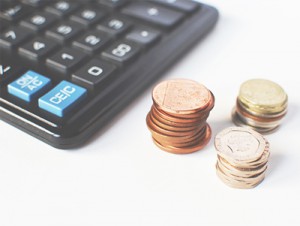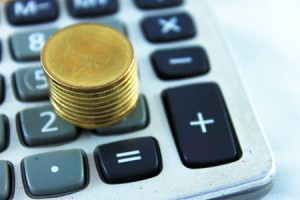Being self-employed is a tough ask, as one needs to market themselves, entail costs, perform services and then handle tax filings too.
Taking on risks and costs that are usually handled by other people when working on a job is tough.
Sometimes they do not get enough customers or fail to generate income and need to prove the value of their offerings.
1. Set up a Tax Savings Account other than Your Main Account
After being self-employed, one should have a separate savings account for tax savings and for business transactions. 
Having different accounts helps a great deal in handling business and personal stuff.
Some self-employed professionals have one account for everything but it is evident that the tax money, income, and expenses, can get lost in the fray.
Setting up separate accounts will keep it hassle-free in the long run.
With every check being deposited, keep 15-20% of income to the separate savings account.
Calculate the tax payment at the end of the year and then write a check out of the account.
2. Claim Operating Expenses
Operating expenses are revenue expenses since they help generate income, and can be claimed every year.
One can include salaries, wages, allowances and bonuses in the calculation along with ad expenses, electricity, phone, travel costs etc.
3. Prepay Some Expenses This Year to Reduce Taxes
You can pay part of the taxes in advance and you will save yourself from the hassle of paying them when you might not do as well.
You can prepay on business loans a year in advance along with office and equipment lease payments.
You can prepay subscriptions, seminars, telephone and IT services and the like.
By prepaying, you can even apply for a tax deduction while also getting discounts for paying in advance.
You might find some service provider finding ways to boost sales results before the end of June.
4. Consider Asset Purchases
A small business that purchases any asset is applicable even if you haven’t paid but invoiced before the end of the financial year. 
It all depends on cost of the asset.
If the items are not part of a set and priced less than $300, or an integral part of the set costing $300 or less, an immediate deduction can be claimed.
For all items priced above $300, or a set that costs more than $300, deductions can be claimed owing ot the overall decline of value.
One can claim the expenses of calculators, computers, desks, chairs, filing cabinets, power tools, safety glasses, professional libraries and the like.
5. Bite the Bullet and Do Away with Bad Debts
A bad debt is a taxable sale that is unpaid for more than 12 months with no chance of recovery.
You must have noted that there have been bad debts and are written off.
Speak with the accountant about the GST impact too.
6. Claim for Entertainment
Entertainment expenses are generally out of the purview of deductions.
The cost of business lunches, and attendance at sporting events, concerts or other functions or events is not taken into consideration even if you discuss business matters at the occasion.
7. Use Medical Insurance Deductions
One can deduct premiums for health insurance for you and your spouse along with premiums for long-term insurance for health care.
The policy can be in your personal name and deductible for taxes.
8. Avoid the Hobby Trap 
Do not deem your self-employment as a hobby, since although you can furnish your income, you can deduct expenses only for your income amount.
As to whether you will be running your business as per ATO guidelines, it depends on factors including GST registration that one must register if income exceeds $75,000, and even claim business losses against income where turnover exceeds $20,000 a year.
The business will be known to be a small business entity if the overall turnover is less than $2 million annually.
9. Turn Charity or Gifts into Business Expenses 
The amount of claim depends directly on type of gift.
Gifts in money need to be $2 or more while gifts in property, can be claimed depending on value of property.
You can only claim a tax deduction for gifts or donations to organisations that have a DGR (Deductible Gift Recipients).
A tax deduction is claimed in the tax return for income year based on the creation year of your gift.
One needs to claim gifts for five income years in some circumstances.
10. Use Superannuation Allowance
Most people can claim a full deduction for contributions for super till they are 75 years old. 
Those aged 65 -74 years need to make it to work test for eligibility for contribution and tax deductions.
Consider this fact that all contributions made may attract extra tax especially if the limit has reached.
One can be eligible and make super contributions, the government will match the entire contribution till a limit, unless the contribution is viewed as a tax deduction.
Your super fund should have your tax file number (TFN), or else all super contributions will receive an additional 34% tax and one would not be able to accept personal contributions.
11. Plan Ahead for Holidays
You can book tickets for your future client visits or for surveying the market in advance, and the amount spent in holidays can be shown as business cases especially if you can prove that client visits happened during the interim.
12. Car Expenses 
Keep records of the mileage of your car along with the purpose for each trip taken, without taking personal tours into account.
Calculate car tax deductions using standard mileage rate or stick to actual car expenses.
Travel expenses relating to conferences, seminars and other work-based events are deductible to the travel actually done for income-producing activities.
Mike Watson Big fan of Geelong Football Club, tax advisor and food lover. You can follow him on Twitter.

No comments:
Post a Comment